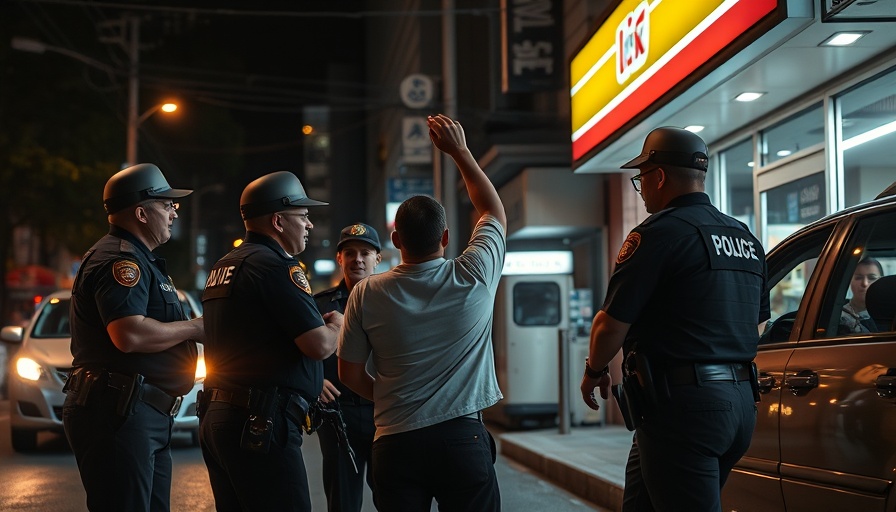
Understanding Intuition: A Vital Resource for Law Enforcement
Every police officer knows that at the heart of effective policing lies a resource that cannot be quantified: intuition. Speculated to be a form of instinct honed over years of experience, intuition often serves as an officer's internal compass, guiding them in high-pressure situations to make swift decisions that could mean the difference between life and death. In law enforcement, understanding and harnessing this instinct is paramount, as it supports officer safety and enhances community trust.
The Role of Intuition in Crisis Management
In a profession where time is critical, officers frequently rely on their gut feelings. A chilling example comes from an officer who, while outside of jurisdiction, felt compelled to stop a vehicle despite having no clear reason to do so. This moment of intuition led to the discovery of a loaded handgun and a parolee on the run. It’s instances like these that highlight the power of intuition in crisis management—officers must be encouraged to trust their instincts alongside their training to ensure public safety.
Building Community Trust through Intuition
Intuition not only aids in tactical operations but also in building trust within the community. Officers who are attuned to their instinctual cues are often more engaged with the public, allowing them to notice subtle signs of distress or criminal activity that might otherwise go unnoticed. This heightened awareness can foster community engagement, suggesting a potential correlation between intuitive officers and community trust metrics.
Enhancing Officer Training to Develop Intuition
Understanding the concept of intuition is crucial, but so is the training that supports its development. Police departments should incorporate training programs focused on cultivating intuitive skills. Workshops that explore decision-making under pressure, role-playing crime scenarios, or simulations designed to enhance perceptual acuity can aid in fostering these skills. Such programs are vital for modern policing strategies, aiming to produce officers who are not just reactive but proactive in their roles.
Practical Tips for Officers to Enhance Intuitive Skills
While training plays a significant role, there are practical tips that officers can implement into their daily routines to strengthen their intuition. Maintaining a growth mindset is crucial; officers should be encouraged to reflect on their experiences, noting moments when following intuition yielded positive results. Furthermore, engaging in mindfulness practices can increase self-awareness and sensitivity to the subconscious cues that contribute to intuition.
Embracing Modern Technology to Support Intuitive Decision-Making
As we embrace advanced policing technologies, there’s a growing need to balance tech dependence with innate skills like intuition. Crime analytics and real-time data can serve as supportive tools to intuition, enhancing situational awareness. Yet, it’s important to remember that technology should augment, not replace, the human insight that officers bring to their roles.
In conclusion, embracing the power of intuition within law enforcement is essential not only for effective policing but also for fostering lasting relationships with the communities they serve. By understanding and enhancing this often-overlooked resource, police departments can improve officer wellness and efficiency while simultaneously building public safety and trust.
Implementing modern training modules that reflect these insights and engaging with community programs will bring about innovative policing approaches and a more secure environment for all.
 Add Row
Add Row  Add
Add 

 Add Element
Add Element 












Write A Comment